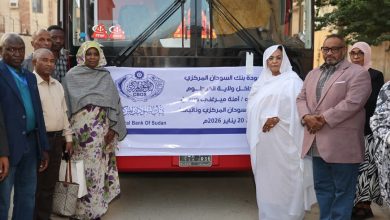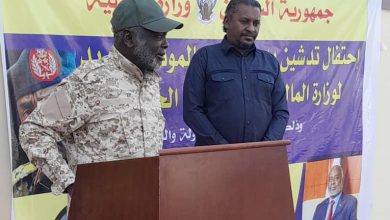Expert: Sudan should secure a Qatari deposit

Sudan Events – Nahed Oshi
An economic expert has advised the Central Bank of Sudan CBS to work for securing foreign deposit of a significant value from a sister country, such as Qatar, in order for the country to eclipse the continuous rise in the rate of exchange of the Sudanese pounds against hard currencies, namely the dollar, the pound registering the lowest value ever as a result of the ongoing war that erupted mid-April, this year,
Economist Dr. Adel Abdul Aziz, in statement to (Sudan Events), says he believes that the Central Bank of Sudan CBS was no longer able to control the value of the Sudanese currency against foreign currencies in line with its flexible, exchange system as a monetary policy.
He warned of the rising value of foreign currencies, especially the US dollar against the Sudanese pound. In the third of week of November, the value of one dollar was equivalent to SDGs 1,050 in the parallel (black) market, while the official rate was about SDGs763 to the dollar. He said that action was needed to bring back the to the coffer all export revenues from exporters of all commodities, especially gold.
He believes that peace has to realize through assisting the national army defeat the militia Rebel Support.
He attributed the Bank of Sudan’s inability to control the currency to the decline in its foreign exchange and gold reserves, which were from export revenues, the state’s oil sales and proceeds from a pipeline exporting South Sudan’s crude, in addition to migrant remittances.
Dr. Adel stated that the Sudanese export of various goods was affected by the war and the interruption of transport and storage chains, in addition to the fact that a significant size of animal exports go to the Arab Republic of Egypt through the use of local currencies that do not constitute a foreign currency balance with the Bank of Sudan.
He said Sudanese crude oil exports and pipeline revenues were affected because fields and facilities are located in zones that are battle field areas.
He added that the stoppage of ATMs and bank branches played a major role in the weak return on remittances from expatriates, as well as the direction of some of the remittances to countries where Sudanese families sought refuge, such as Egypt, Uganda, and the Arab Gulf states.



